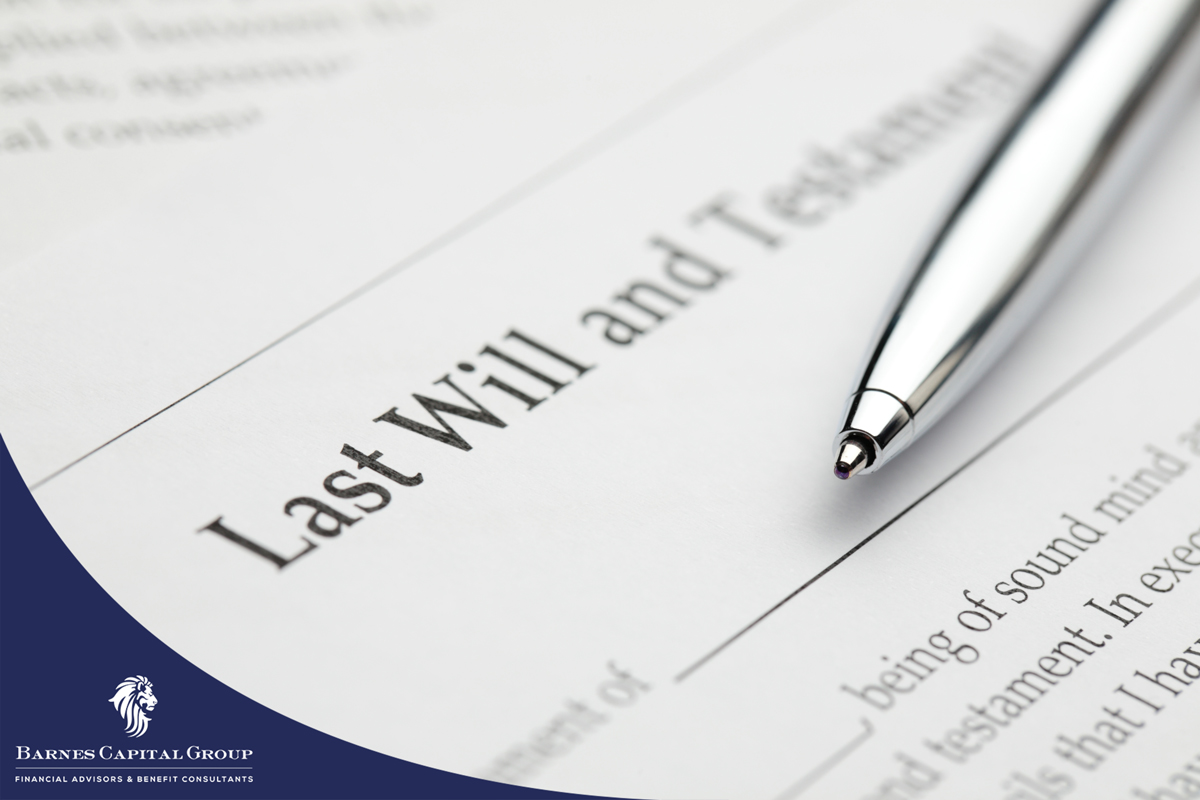
The Downside of DIY Wills
Don’t Discount Your Will. A self-created last will and testament may lead to problems.
As an early step in estate planning, you may be tempted to write your own will. There are some good reasons why you shouldn’t. While do-it-yourself wills may be cost-effective and make the process of will creation relatively simple, they also have shortcomings.
DIY wills tend toward the basic and generic. The more complex your estate, the more their templates and language may prove insufficient. They are written to comply with laws in all 50 states, but not necessarily laws specific to your state. Estate tax law, itself, can vary widely from state to state. (A person who owns homes or rental property in multiple states, for example, may be poorly served by a DIY will.)
Their fine print warns you not to fully trust them. Typically, they contain a disclaimer that tells you to consult an attorney, stating that the information they present to you does not represent legal advice.
Write or revise your will with the help of estate planning professionals. The expense is worth it, especially if your estate is not small.
Securities offered through LPL Financial, member FINRA/SIPC. Investment advice offered through Barnes Capital Group, a Registered Investment Advisor. Barnes Capital Group is a separate entity from LPL Financial.
線上娛樂城推薦
… [Trackback]
[…] Read More Info here on that Topic: barnescapgroup.com/the-downside-of-diy-wills/ […]
티비위키
… [Trackback]
[…] Information to that Topic: barnescapgroup.com/the-downside-of-diy-wills/ […]
รับทำ SEO
… [Trackback]
[…] Read More on to that Topic: barnescapgroup.com/the-downside-of-diy-wills/ […]
situs toto
… [Trackback]
[…] Find More Information here to that Topic: barnescapgroup.com/the-downside-of-diy-wills/ […]
สล็อต
… [Trackback]
[…] Read More here on that Topic: barnescapgroup.com/the-downside-of-diy-wills/ […]
20141 zip code
… [Trackback]
[…] Find More on on that Topic: barnescapgroup.com/the-downside-of-diy-wills/ […]
superkaya88
… [Trackback]
[…] Read More to that Topic: barnescapgroup.com/the-downside-of-diy-wills/ […]
Arcade Game
… [Trackback]
[…] Info to that Topic: barnescapgroup.com/the-downside-of-diy-wills/ […]
สมัคร yehyeh
… [Trackback]
[…] There you can find 96422 additional Information to that Topic: barnescapgroup.com/the-downside-of-diy-wills/ […]
bonanza178
… [Trackback]
[…] Read More Information here to that Topic: barnescapgroup.com/the-downside-of-diy-wills/ […]
웹툰 사이트
… [Trackback]
[…] Info on that Topic: barnescapgroup.com/the-downside-of-diy-wills/ […]
buy oxycodone pills online
… [Trackback]
[…] Info on that Topic: barnescapgroup.com/the-downside-of-diy-wills/ […]
สั่งดอกไม้ออนไลน์
… [Trackback]
[…] Read More Information here on that Topic: barnescapgroup.com/the-downside-of-diy-wills/ […]
Anavar in australia
… [Trackback]
[…] Read More Info here to that Topic: barnescapgroup.com/the-downside-of-diy-wills/ […]
Buy Apple Airpods Pallet
… [Trackback]
[…] Read More here to that Topic: barnescapgroup.com/the-downside-of-diy-wills/ […]
เปิดบัญชี exness
… [Trackback]
[…] Find More to that Topic: barnescapgroup.com/the-downside-of-diy-wills/ […]
จำนำกระเป๋าแบรนด์เนม
… [Trackback]
[…] Here you will find 75004 more Info on that Topic: barnescapgroup.com/the-downside-of-diy-wills/ […]
naakte tieten
… [Trackback]
[…] Find More here to that Topic: barnescapgroup.com/the-downside-of-diy-wills/ […]
เครื่องสแกนนิ้ว
… [Trackback]
[…] Find More on that Topic: barnescapgroup.com/the-downside-of-diy-wills/ […]
บุญมี สล็อต
… [Trackback]
[…] Read More on to that Topic: barnescapgroup.com/the-downside-of-diy-wills/ […]
ลวดสลิง
… [Trackback]
[…] There you can find 3397 more Info on that Topic: barnescapgroup.com/the-downside-of-diy-wills/ […]
Relex smile
… [Trackback]
[…] Information to that Topic: barnescapgroup.com/the-downside-of-diy-wills/ […]
sitecom
… [Trackback]
[…] Find More to that Topic: barnescapgroup.com/the-downside-of-diy-wills/ […]
ไซด์ไลน์
… [Trackback]
[…] Find More Info here on that Topic: barnescapgroup.com/the-downside-of-diy-wills/ […]
เว็บปั้มไลค์
… [Trackback]
[…] Info on that Topic: barnescapgroup.com/the-downside-of-diy-wills/ […]
essentials
… [Trackback]
[…] Information to that Topic: barnescapgroup.com/the-downside-of-diy-wills/ […]
รับจํานํารถ
… [Trackback]
[…] Find More on that Topic: barnescapgroup.com/the-downside-of-diy-wills/ […]
hop over to this web-site
… [Trackback]
[…] Read More on to that Topic: barnescapgroup.com/the-downside-of-diy-wills/ […]
ส่งพัสดุ
… [Trackback]
[…] Here you will find 13918 more Information on that Topic: barnescapgroup.com/the-downside-of-diy-wills/ […]
arduino
… [Trackback]
[…] There you can find 44895 additional Information on that Topic: barnescapgroup.com/the-downside-of-diy-wills/ […]
กระเบื้องยาง SPC ราคา
… [Trackback]
[…] Here you can find 37819 additional Info to that Topic: barnescapgroup.com/the-downside-of-diy-wills/ […]
www.snaptube.blog.br
… [Trackback]
[…] Find More on that Topic: barnescapgroup.com/the-downside-of-diy-wills/ […]
overwatch aimbot download pc
… [Trackback]
[…] Find More Info here on that Topic: barnescapgroup.com/the-downside-of-diy-wills/ […]
นักสืบเอกชน
… [Trackback]
[…] Read More Information here on that Topic: barnescapgroup.com/the-downside-of-diy-wills/ […]
Michael
… [Trackback]
[…] Read More on to that Topic: barnescapgroup.com/the-downside-of-diy-wills/ […]
ความแตกต่างระหว่างเว็บ ole777 กับ LSM99LIVE
… [Trackback]
[…] There you can find 303 more Information on that Topic: barnescapgroup.com/the-downside-of-diy-wills/ […]
Accounting Phuket
… [Trackback]
[…] Find More Information here on that Topic: barnescapgroup.com/the-downside-of-diy-wills/ […]
รับทำบัญชี ภูเก็ต
… [Trackback]
[…] Read More on that Topic: barnescapgroup.com/the-downside-of-diy-wills/ […]